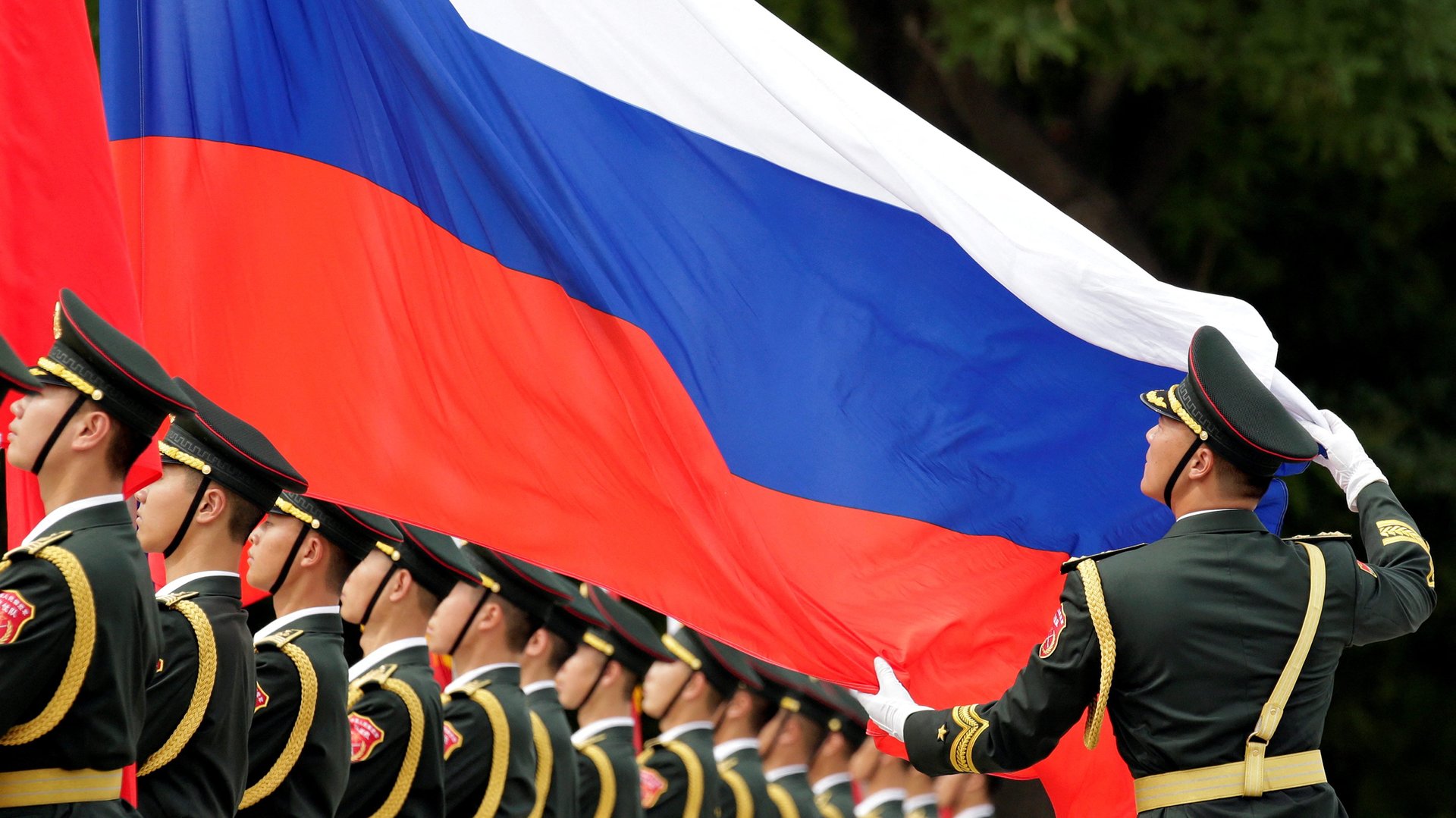Chinese scholars are warning of the cost of pro-Russia “neutrality”
Since Russia invaded Ukraine last month, China has insisted on remaining “neutral.”


Since Russia invaded Ukraine last month, China has insisted on remaining “neutral.”
Yet that balancing act—which seems premised on Beijing’s hope of avoiding repercussions while maximizing the political and economic benefits it enjoys from continued relations with Russia, Europe, and the US—appears increasingly precarious.
As US national security advisor Jake Sullivan meets today with China’s top diplomat Yang Jiechi in Rome to discuss the Russia-Ukraine war, the US will be scrutinizing whether Beijing provides any economic or material support to Moscow.
Defining Beijing’s “neutrality”
To be clear, it’s hard to take Beijing’s claims of neutrality seriously. At the very least, its stance is closer to what former White House Asia policy advisor Evan Medeiros calls “pro-Russia neutrality.”
For one, Chinese president Xi Jinping has held a phone call with his Russian counterpart Vladimir Putin to discuss the war, but not with Ukrainian president Volodymyr Zelensky.
Meanwhile, Chinese state media has largely refrained from calling Russia’s unprovoked invasion of Ukraine a war, and in some cases even parroted the Kremlin phrase “special military operation.” And Chinese propaganda outlets have backed Russia’s false claims that the US is funding a bio-weapons program in Ukraine.
Is neutrality a good strategy?
Hu Wei, vice-chairman of the Public Policy Research Center, which sits under an advisory agency to China’s state council, argues in an essay penned earlier this month that China must “give up being neutral” and “avoid playing both sides in the same boat.”
While China has made clear that its relationship with Russia has “no limits,” Beijing will only stand to gain from casting its lot with Moscow if the latter manages to defeat Ukraine and withstand western economic sanctions, Hu argues. And so far, in his assessment, that looks unlikely.
“China cannot be tied to Putin and needs to be cut off as soon as possible…Being in the same boat with Putin will impact China should he lose power,” Hu writes, adding that Beijing’s failure to “proactively” respond to Russia’s aggression will invite “further containment from the US and the West.”
In fact, China’s current “neutrality” is a lose-lose proposition, Hu argues: “…this position does not meet Russia’s needs, and it has infuriated Ukraine and its supporters as well as sympathizers, putting China on the wrong side of much of the world. In some cases, apparent neutrality is a sensible choice, but it does not apply to this war, where China has nothing to gain.”
Wang Huiyao, president of the Beijing-based think tank Center for China and Globalization, also sees strategic disadvantages to China of a long drawn-out war in Ukraine.
“The longer the war lasts, the more it will reinvigorate the Western alliance around the idea of a values-based confrontation between East and West, bringing the United States and the European Union into even closer alignment…That is not good for China,” Wang writes in an op-ed published in the New York Times.
Still, it’s unclear how much influence arguments like Hu’s and Wang’s will have on the officials making final policy decisions. According to the internet monitoring group GreatFire, Hu’s original Chinese-language essay has been censored on WeChat, and the website hosting its English-language translation is blocked.